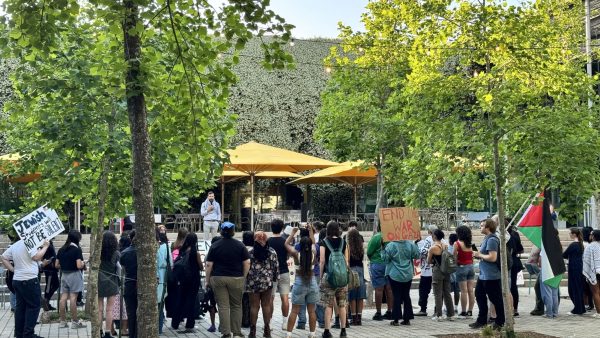Why Latin American studies is such a popular major at Tulane
Few departments at Tulane are as sought after as the Latin American studies department.
According to junior Griffin Smith, a Latin American studies and neuroscience double major, Tulane’s robust Latin American studies department was a large part of what drew her and other students to Tulane.
“A lot of people come here specifically for Latin American studies,” Smith said. “We have such a great program. We have an entire library and like all these rare collections of Latin American books and artifacts.”
Proportionally, Tulane has one of the largest Latin American studies departments in the country. The department has the largest number of faculty associated with any program at the university, excluding professional schools.
The department is closely tied to the Roger Thayer Stone Center for Latin American Studies, which supports scholarship related to Latin America and educates the Tulane community about the multicultural importance of Latin America.
Additionally, the Latin American studies department works hand in hand with the Latin American Library.
Tulane’s Latin American Library is lined with books full of rich history and tradition. Located on the fourth floor of Howard-Tilton Memorial Library, it is one of only three stand-alone Latin American libraries in the country.
“One of the things I feel working at the Latin American Library is that it is a place with a long and venerable history, and I always feel that I’m working in a place that is larger than myself,” Hortensia Calvo, the director of the Latin American Library, said.
The Latin American Library takes pride in having one of the only image archives solely focused on Latin America, with some of the earliest images dating back to the 19th century.
While the library focuses on history and tradition, it also values the contemporary aspects of Latin America and collects materials from art galleries and exhibits from around the world.
These artifacts, as well as the numerous classes in the Latin American studies department, give students a sense of the rich history and tradition of the region, according to professor Ana López, a Latin American studies professor and member of The Stone Center.
“Latin America has always been perceived as United States’ closest neighbor and a strategic neighbor at that,” López said. “Through history we know of too many alliances and abuses that have been forged upon Latin America by the U.S. I think it is very imperative that we know that history and that we know how to proceed forward with these very important neighbors.”
López said Latin American studies is becoming more relevant for Tulane and the surrounding New Orleans community, as well as the rest of the country.
People of Latin American heritage are the fastest growing minority group in the U.S. In fact, according to López, Spanish will soon be spoken more in America than in any one country in Latin America.
“It’s a significant part of who we are today,” López said.
Latin American studies extends beyond the classroom. Students recently revived the Tulane Undergraduate Latin American Studies Organization, which is open to all students who have an interest in Latin American culture.
From hosting a screening of the movie “Coco” to baking different types of Mexican desserts, the organization provides students with many ways to be exposed to Latin American culture.
The organization hopes to get students to “come to these events and really learn more about Latin Americans specifically in New Orleans,” Smith said.
The Latin American Library and the Latin American studies department are central parts of campus and are treasured by both students and faculty.
“I feel like I am carrying on a tradition and leading the library into new territories, but always with a very strong tradition behind me,” Calvo said. “That’s very special — you don’t get to do that everywhere.”
Your donation will support the student journalists of Tulane University. Your contribution will allow us to purchase equipment and cover our annual website hosting costs.


















Leave a Comment